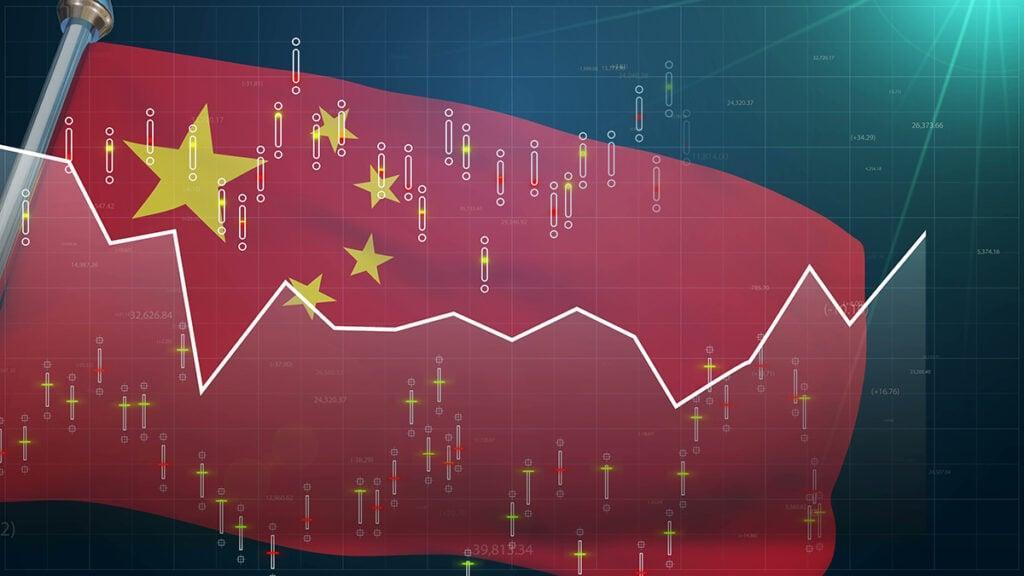Africa-Press – South-Africa. Chinese equities are looking attractive to investors as they have been beaten down over the past few years, with tariffs on goods imported into the United States being the latest knock.
This has left their valuations looking very attractive, with strong businesses experiencing little to no growth in their stock prices despite soaring revenue and profits.
Brian Arcese, global fund manager at Foord, explained that the asset manager is cautiously optimistic about Chinese equities and plans to add exposure throughout 2025.
Chinese equities entered 2025 with positive momentum, with years of policy overhangs finally beginning to lift in the world’s second-largest economy.
The combination of renewed stimulus, stabilising property markets, and a tech-sector rebound had markets pricing in a turning point.
That optimism was tested in March, when the United States imposed sweeping new tariffs on Chinese imports, prompting Beijing to respond in kind.
This has led many to try to escape Chinese equities, fearing the worst if the country’s exporters lose access to the world’s largest consumer market.
However, Arcese explained that, in contrast to the trade war during Trump’s first term, China is significantly better prepared to weather the storm this time around.
The Chinese policy stance has shifted significantly towards pro-growth, with the government implementing substantial fiscal and monetary support since September 2024.
The first quarter of 2025 saw record government bond issuance, targeted rate cuts, and renewed infrastructure investment — all designed to offset persistent domestic weakness and the growing drag from global demand uncertainty.
The housing market, long a source of economic fragility, is beginning to show tentative signs of stability, following significant government support.
In Tier-1 cities, transaction volumes have picked up and prices have started to respond. A disorderly housing unwind now looks less likely than six months ago.
As a result, the chances of an economic meltdown in China are much lower than they were a year ago, with the country expecting strong GDP growth of around 5%.
Going for growth
China President Xi Jinping
Arcese said that Chinese companies are not merely looking to survive but have shown tremendous growth despite local economic headwinds and global tension.
In large part, this is due to regulatory pressure on Chinese technology companies being eased, with the country realising it needs national champions to maintain its position as a major global economy.
A February meeting between President Xi and major tech CEOs signalled a clear shift in tone. The government acknowledged the sector’s importance to long-term competitiveness and employment and promised a more predictable regulatory environment.
This coincided with the launch of DeepSeek, an advanced AI model that impressed markets and showcased China’s innovation capacity despite ongoing restrictions on semiconductor imports.
The Hang Seng Tech Index surged early in the quarter, buoyed by renewed investor confidence and strong earnings momentum.
Trump’s new tariffs have disrupted this narrative, with the United States raising effective duties on Chinese goods to over 200%, while China responded with a broad suite of countermeasures.
Markets sold off sharply, with Chinese equities briefly entering correction territory. However, Beijing moved quickly to contain the fallout.
State funds intervened to stabilise equity markets, and policymakers signalled further stimulus to cushion the domestic impact. Measures under consideration include enhanced tax rebates for exporters, increased consumption incentives, and targeted liquidity support.
While these developments are a clear setback, the broader story remains intact. China’s export reliance on the US has declined meaningfully — from over 7% of GDP a decade ago to under 3% today — and its trade diversification continues.
Rising intra-Asian trade, deeper integration via regional agreements, and a growing domestic consumer base reduce China’s vulnerability to US-specific shocks.
Meanwhile, long-term growth drivers such as AI, green energy, and advanced manufacturing continue to attract investment.
Chinese equities remain among the cheapest in global markets. Valuations reflect deep investor scepticism, yet corporate fundamentals continue to improve.
Foord is overweight towards the region, favouring companies aligned with long-term policy goals, robust balance sheets, and proven management.
The asset manager sees opportunity in technology, select consumer businesses, and dividend-paying state-owned enterprises.
While the tariff conflict introduces volatility, it does not invalidate the investment case. China’s policy support, innovation push, and attractive valuations suggest the rally may not be over — only paused.
For More News And Analysis About South-Africa Follow Africa-Press






